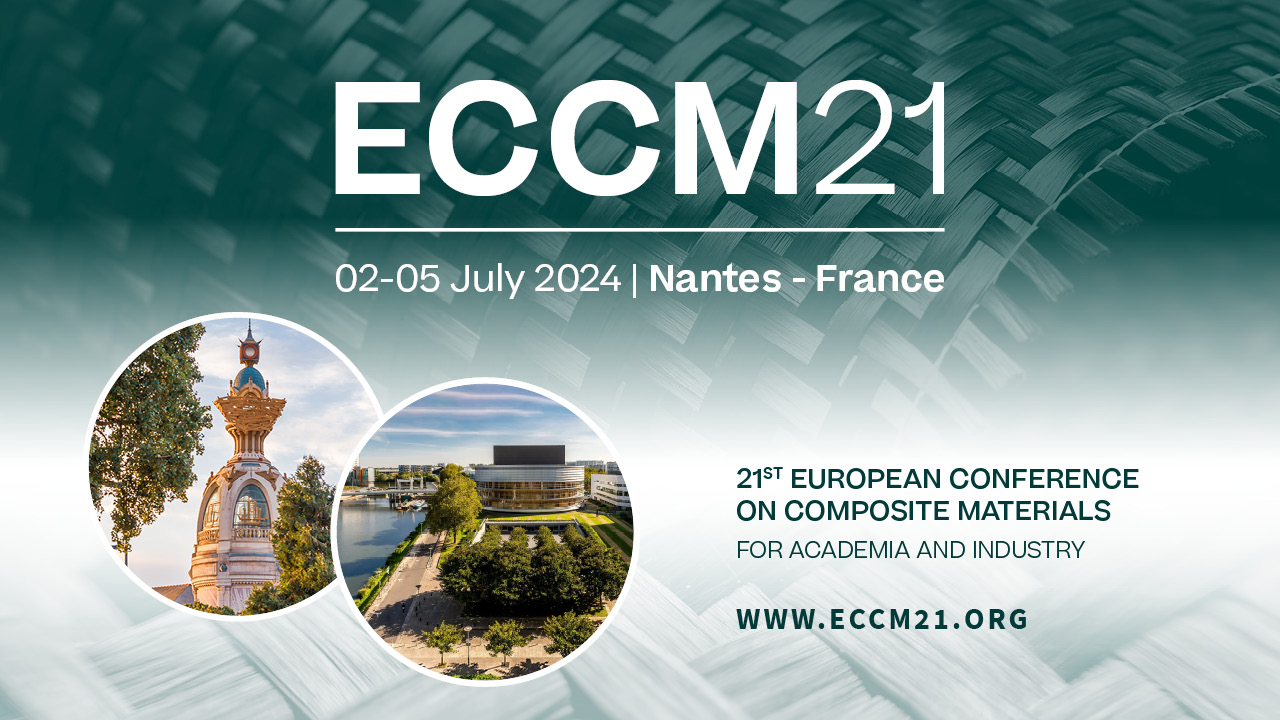Prepreg consolidation predictions using deep-learning
Topic(s) : Special Sessions
Co-authors :
Hanna BEKETOVA (UNITED KINGDOM), Iryna TRETIAK (UNITED KINGDOM), Stephen HALLETT (UNITED KINGDOM), Jonathan P.-H. BELNOUE (UNITED KINGDOM), Anatoly KOPTELOV (UNITED KINGDOM)Abstract :
Compaction of prepreg is a critical process in composite manufacturing that influences the final quality of the part. Various process conditions affect the material response differently. There are variety of physical models available to characterise uncured material behavior, however they have their limitations, such as, for example, not being able to take into account springback during unloading stage.
This work aims to create a predictive tool that uses artificially intelligence (AI), specifically deep learning, and extensive experimental dataset to reflect the compaction behaviour of composite precursors. The main advantage of AI in field of composites compaction modelling is the ability to approximate complex forms of material behaviour and processing conditions (such as springback, temperature, layup effects) within a single model. However, to obtain reliable predictions, a comprehensive set of training data must be collected from the studied system, which becomes the main challenge for any deep learning approach.
In this study, an extensive series of compaction tests was conducted to investigate deformation response of thermoset prepregs IMA/M21. Three stacking sequences were considered: cross-ply, semi-blocked ply, and blocked ply. 370 specimens were manufactured for each layup configuration. Various loading schedules were employed in these experiments to explore the material’s response under processing scenarios (see setup with loading cases in Figure 1a). All experimental programs were structured in a way to encompass a broad spectrum of pressure levels, loading rates, and relaxation scenarios. The experimental programs were not aimed to simulate any specific manufacturing processes but rather to consider as many loading cases as possible for the sake of data diversity. Overall, 115 programs were conducted per layup type. The resulting wide experimental data, derived from about 1500 tests, was stored in a data warehouse, which served as a valuable source for the detailed analysis of the material’s performance and further neural network training.
The proposed AI system is based on a Long-Short Term Memory (LSTM) type network (see Figure 1b). The chosen type of network is able to learn time-dependent features of a studied system and the patterns in their evolution in response to external factors. The network, therefore, was set to predict thickness evolution resulting from an acting set of processing conditions (temperature, pressure, pressure rate). The results are then compared against a well-established physics-based compaction models [1, 2, 3].
The trained deep learning model showcased the ability to predict complex compaction response for both loading and relaxation stages, reflecting springback effects and thickness evolution with high degree of accuracy. The model execution time is instant, which paves the way for the application of such technique for data-intensive problems, such as optimisation or real-time applications.
This work aims to create a predictive tool that uses artificially intelligence (AI), specifically deep learning, and extensive experimental dataset to reflect the compaction behaviour of composite precursors. The main advantage of AI in field of composites compaction modelling is the ability to approximate complex forms of material behaviour and processing conditions (such as springback, temperature, layup effects) within a single model. However, to obtain reliable predictions, a comprehensive set of training data must be collected from the studied system, which becomes the main challenge for any deep learning approach.
In this study, an extensive series of compaction tests was conducted to investigate deformation response of thermoset prepregs IMA/M21. Three stacking sequences were considered: cross-ply, semi-blocked ply, and blocked ply. 370 specimens were manufactured for each layup configuration. Various loading schedules were employed in these experiments to explore the material’s response under processing scenarios (see setup with loading cases in Figure 1a). All experimental programs were structured in a way to encompass a broad spectrum of pressure levels, loading rates, and relaxation scenarios. The experimental programs were not aimed to simulate any specific manufacturing processes but rather to consider as many loading cases as possible for the sake of data diversity. Overall, 115 programs were conducted per layup type. The resulting wide experimental data, derived from about 1500 tests, was stored in a data warehouse, which served as a valuable source for the detailed analysis of the material’s performance and further neural network training.
The proposed AI system is based on a Long-Short Term Memory (LSTM) type network (see Figure 1b). The chosen type of network is able to learn time-dependent features of a studied system and the patterns in their evolution in response to external factors. The network, therefore, was set to predict thickness evolution resulting from an acting set of processing conditions (temperature, pressure, pressure rate). The results are then compared against a well-established physics-based compaction models [1, 2, 3].
The trained deep learning model showcased the ability to predict complex compaction response for both loading and relaxation stages, reflecting springback effects and thickness evolution with high degree of accuracy. The model execution time is instant, which paves the way for the application of such technique for data-intensive problems, such as optimisation or real-time applications.

